Courses WS25/26
Form, geometry and material are inseparable aspects in the art of structural design. Bringing these building blocks together means approaching the contemporary challenges of structural design in an efficient and sustainable way. The goal at dos is to teach the cross-material fundamentals of structural design and building construction.
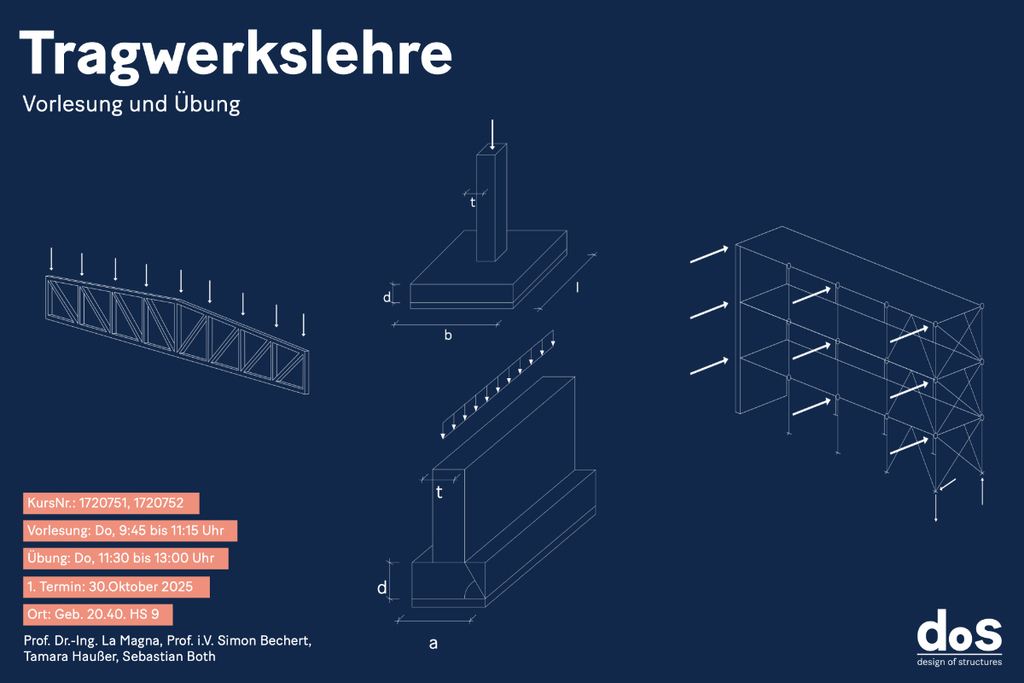
The module Structural Engineering teaches the fundamental functions and modes of action of the essential different structures (physical and technical fundamentals) as well as the importance of structural design in the architectural design process in terms of form, function, sustainability and design.
More info...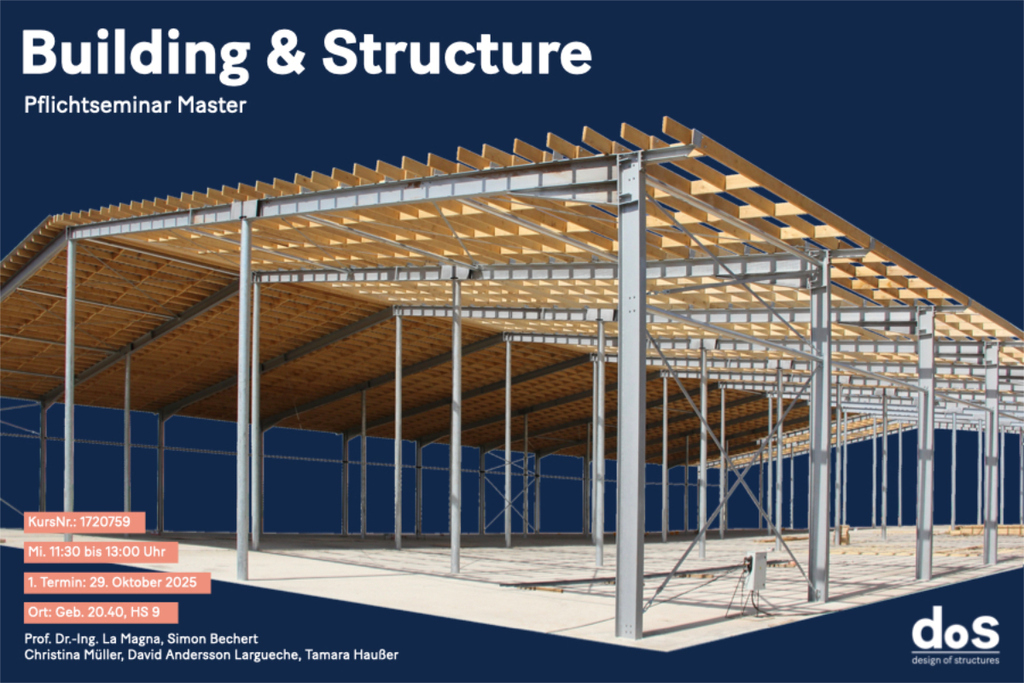
The Building & Structure seminar examines the functional and effective modes of structural design in more detail. Therefore, the use and the limitations of materials like timber, steel, concrete and clay will be analysed in detail.
More info...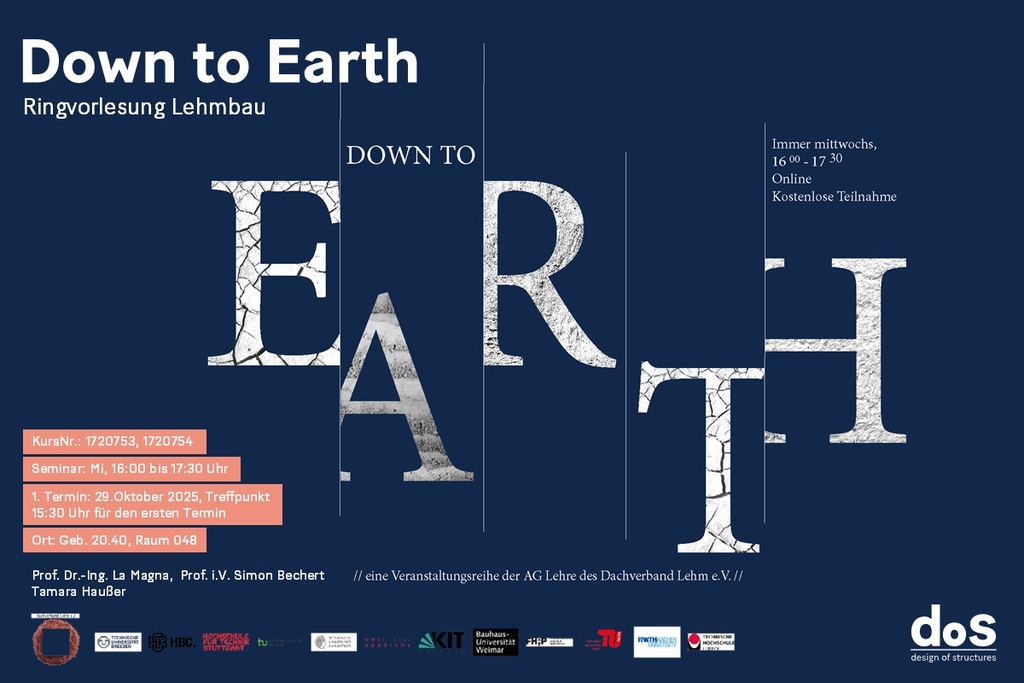
The seminar “Down to Earth” is a lecture series on earthen construction, organized by the Dachverband Lehm e. V. in cooperation with universities and industry partners. It features weekly lectures covering a wide range of topics – from fundamental principles and building techniques to restoration practices, as well as current research developments and innovative applications in modern earthen architecture.
More info...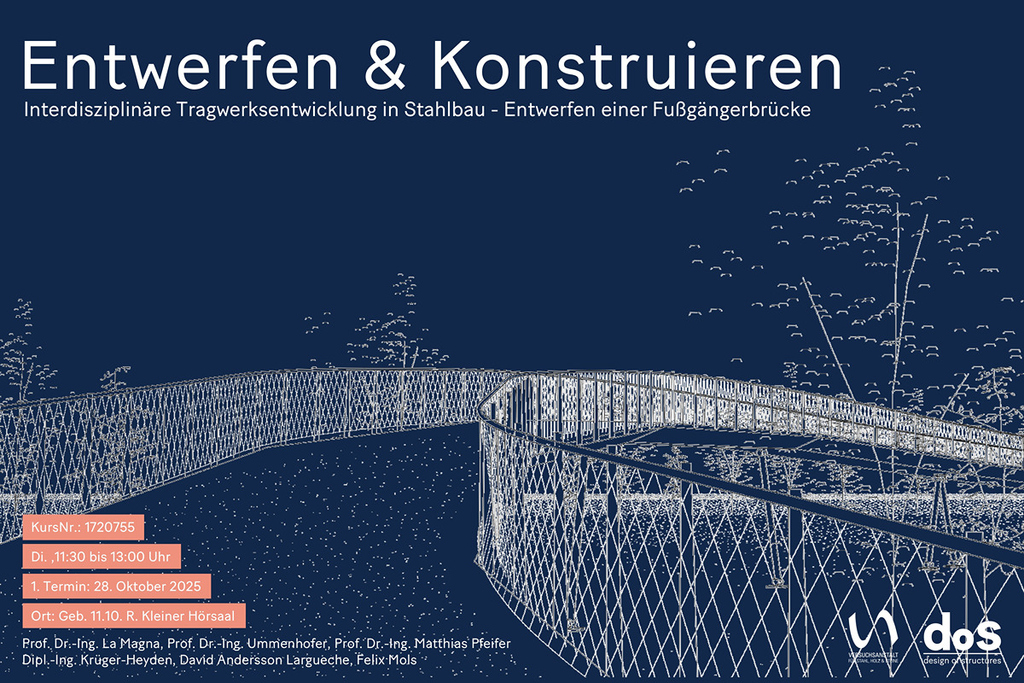
At "Design and Construction”, a design task will be developed in collaboration with students of the faculty of Civil Engineering. The designs tasks will be developed in mixed groups. The aim of this course is to train students from both disciplines on an interdisciplinary spectrum. This will not only provide an understanding of structural analysis and structural design, but also train interdisciplinary communication skills.
More info...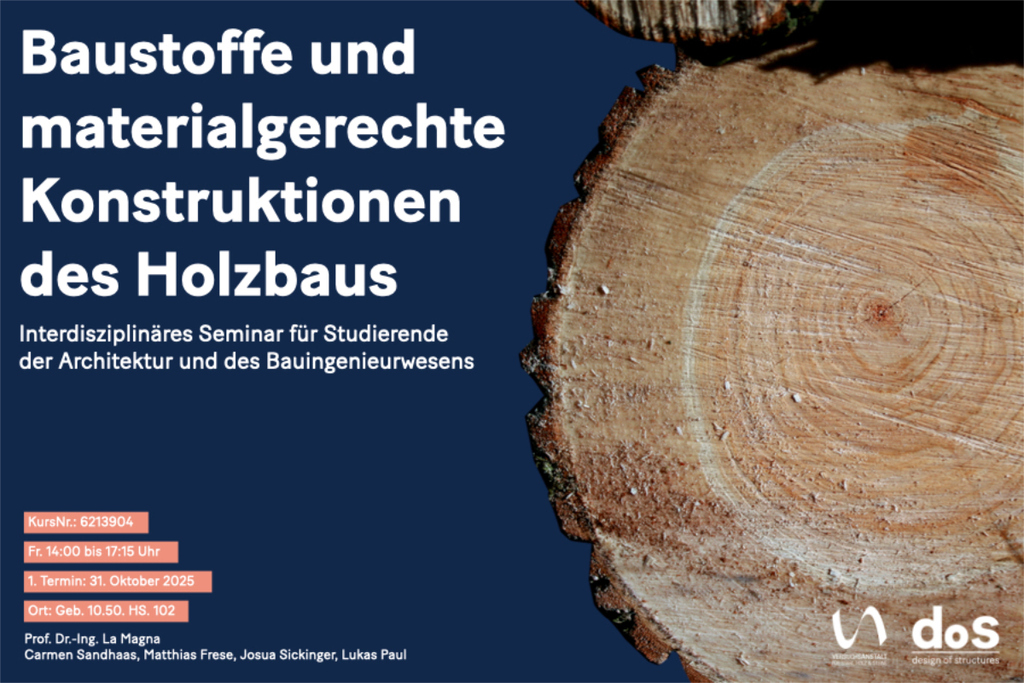
The interdisciplinary seminar " Timber Structures: Materials and Appropriate Design " covers the building material wood, the derived construction products, and their appropriate application. It addresses issues in timber construction and their backgrounds (hygroscopicity, anisotropy, heterogeneity, biological properties) and derives methods for developing robust and reliable timber construction details in practice.
More info...
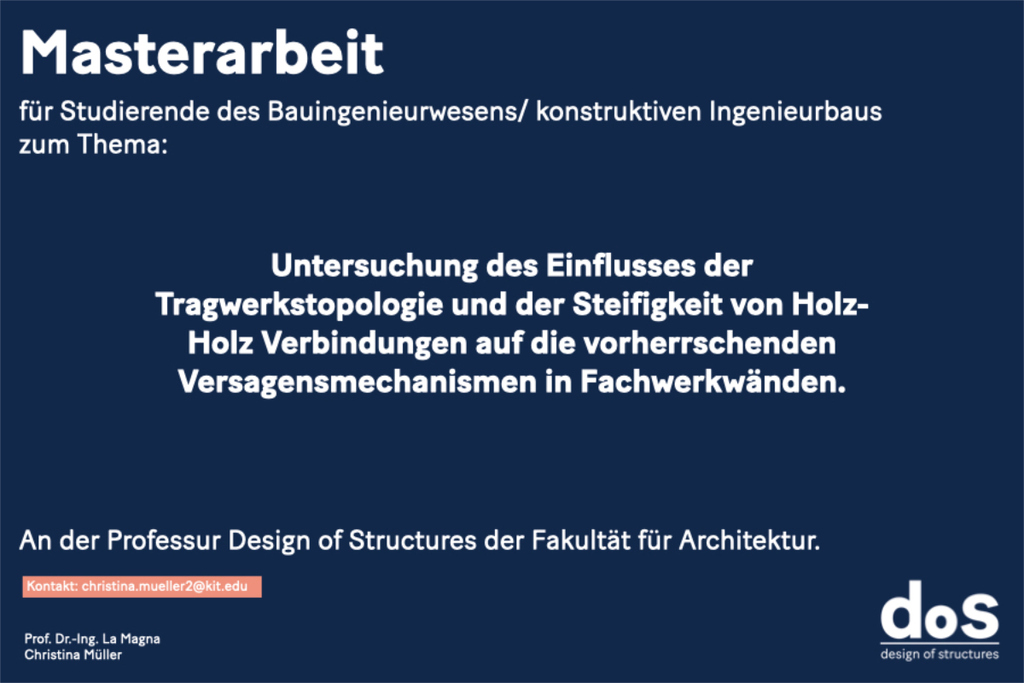
The aim of the master's thesis is to develop fundamental rules for the interaction between topology and connection stiffnesses, as well as for the targeted induction of specific failure mechanisms in truss walls.
The specific task will be elaborated and defined together.
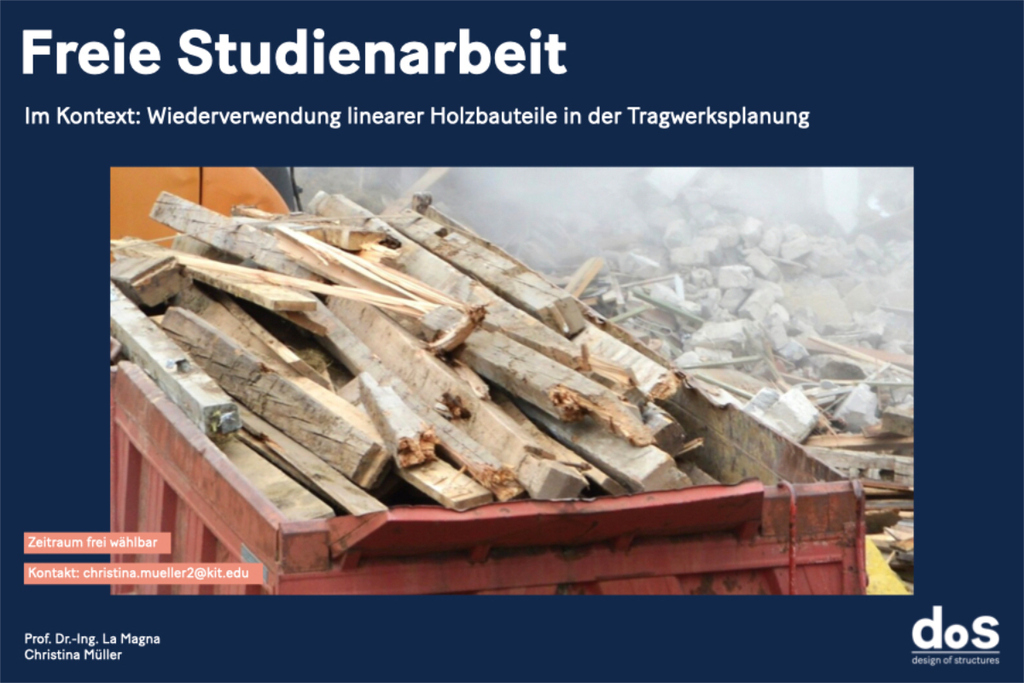
Students have the opportunity to work on a research project in the field of load-bearing reuse of linear timber components. The exact topic will be developed in consultation with the students, based on the topics currently available.
Mehr Info...
